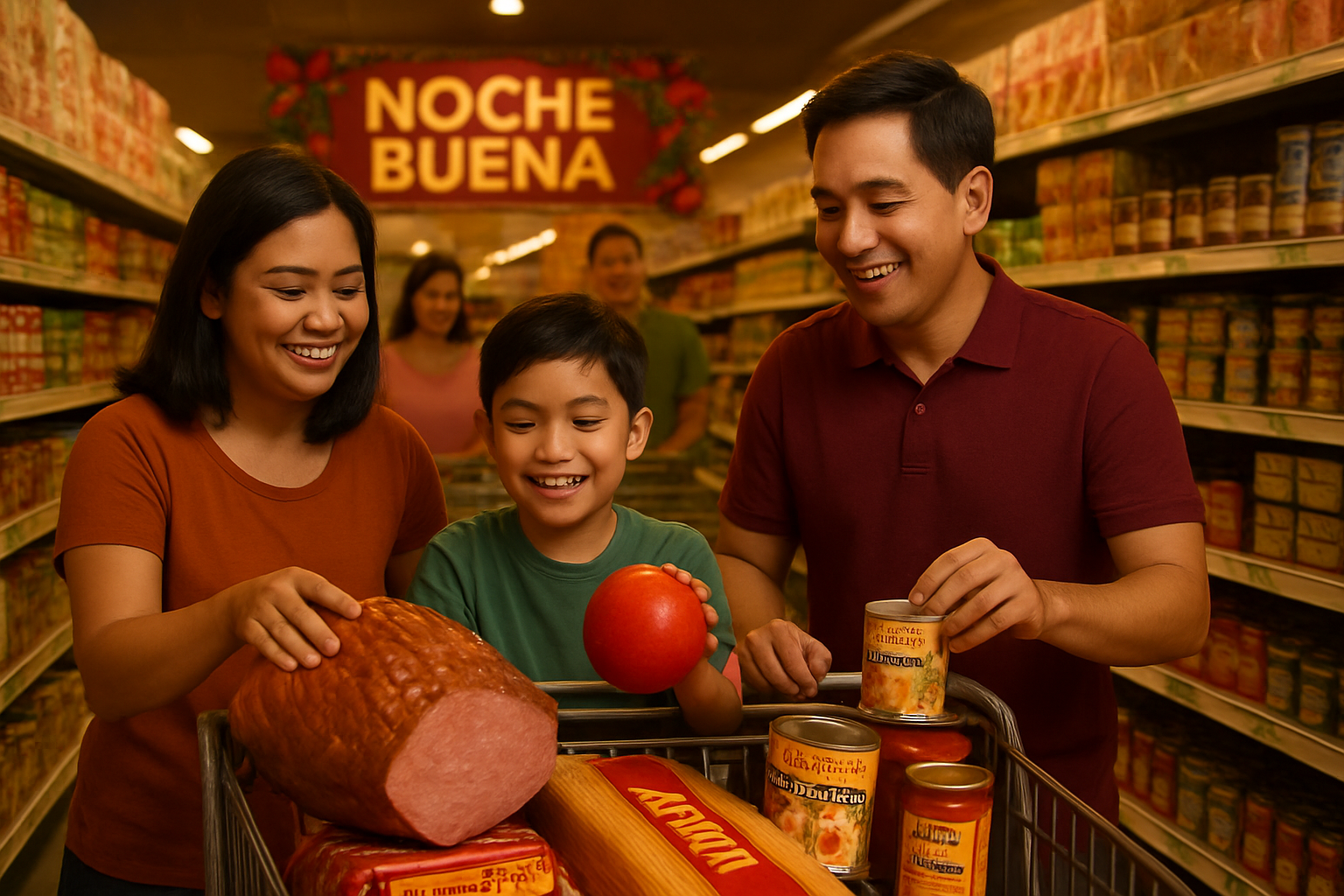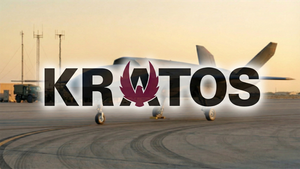
MANILA, Philippines – The Department of Trade and Industry (DTI) has delivered a much-anticipated assurance to Filipino households: stable prices for essential Noche Buena items this upcoming 2025 holiday season. This proactive measure, outlined in the DTI's comprehensive 2025 Noche Buena Price Guide released around November 9-10, 2025, aims to alleviate consumer concerns regarding holiday spending and ensure that traditional festive feasts remain affordable and accessible for families across the archipelago.
The announcement comes as a significant relief, particularly given ongoing inflationary pressures and the President's directive to safeguard consumer purchasing power. By maintaining prices on a substantial number of holiday staples and even securing rollbacks on select products, the DTI is directly addressing the financial well-being of millions, allowing them to plan their celebrations with greater certainty and less economic strain during a crucial time of the year.
DTI's Strategic Intervention Secures Holiday Price Stability
The DTI's 2025 Noche Buena Price Guide is a detailed blueprint covering 256 selected holiday food items across 14 categories, a testament to the agency's thorough approach to consumer protection. A cornerstone of this guide is the commitment to price stability, with 129 products retaining their 2024 price levels. While 95 items saw minimal increases, attributed to rising costs in ingredients, packaging, and labor, the DTI's most impactful intervention was securing price rollbacks on six specific products following intensive consultations with manufacturers.
These rollbacks are particularly significant for popular Noche Buena fare. Four ham products, including those from prominent brands like CDO and King Sue, have reverted to their 2024 prices. For instance, CDO American Style Ham (500g) decreased from ₱174 to ₱170, and King Sue Piña Ham (800g) dropped from ₱527 to ₱520. Additionally, select brands of queso de bola and spaghetti sauce, such as Danes Queso de Bola (500g) from ₱310 to ₱300 and Sunshine Sweet Style Spaghetti Sauce (500g) from ₱52 to ₱48.50, are now more affordable than the previous year. The guide encompasses traditional items like fruit cocktail, cheese, mayonnaise, and pasta, while also introducing new categories such as nata de coco and kaong, reflecting evolving consumer preferences for dessert ingredients. This guide is set to remain in effect until December 31, 2025, providing a clear benchmark for prices throughout the festive period.
This initiative is not isolated; DTI Secretary Cristina Roque further reinforced consumer protection by highlighting a 60-day price freeze on basic necessities and prime commodities nationwide, enacted in response to a State of Calamity declaration. This broader measure complements the Noche Buena price guide, creating a more stable pricing environment across a wider range of goods. The DTI's proactive engagement with manufacturers, coupled with its commitment to monitor compliance, underscores its role as a key player in safeguarding consumer interests and fostering fair market practices during peak demand seasons. The agency has also established clear channels, including the 1-DTI Hotline and email, for consumers to report any instances of overpricing or irregularities, ensuring a robust enforcement mechanism.
The immediate market reaction has been largely positive from a consumer standpoint, as families can now budget more confidently for their holiday meals. For manufacturers and retailers, the DTI's guide sets clear expectations, ensuring a level playing field and discouraging opportunistic price hikes. While some manufacturers still contend with underlying cost pressures, the DTI's collaborative approach has demonstrated that a balance can be struck between business viability and consumer affordability, particularly for essential holiday goods.
Corporate Crossroads: Navigating Price Controls in the Holiday Market
The DTI's assurance of stable Noche Buena prices creates a complex landscape for public food manufacturing and retail companies in the Philippines, presenting both opportunities for market penetration and significant pressures on profitability. Companies that dominate the Noche Buena staples, such as RFM Corporation (PSE: RFM), Century Pacific Food Inc. (PSE: CNPF), San Miguel Food and Beverage Inc. (PSE: SMFB), and CDO Foodsphere, Inc. (a private entity but a major player in ham), find themselves at the forefront of this dynamic. While stable prices aim to boost consumer spending, manufacturers face the challenge of absorbing rising input costs for raw materials, logistics, and labor, which can compress profit margins.
For companies like RFM Corporation (PSE: RFM), a major producer of pasta (Fiesta, Royal) and spaghetti sauces, maintaining price points as per DTI guidelines could lead to increased sales volume as budget-conscious consumers gravitate towards affordable options. This could translate to a higher market share in key Noche Buena categories. However, the trade-off is often seen in thinner margins, as the company might have to absorb higher costs for wheat, tomatoes, and packaging without passing them fully to consumers. Similarly, CDO Foodsphere, Inc., a dominant player in the ham market, which saw some of its products subject to price rollbacks, will likely need to optimize its production efficiencies and supply chain management to protect its bottom line while meeting increased demand.
Retail giants like Robinsons Retail Holdings, Inc. (PSE: RRHI), operating Robinsons Supermarket, will likely benefit from increased foot traffic and overall holiday spending driven by consumer confidence in stable prices. Their role becomes crucial in ensuring shelves are stocked with DTI-compliant products and in leveraging their scale to negotiate favorable terms with manufacturers. Conversely, the strict adherence to Suggested Retail Prices (SRPs) might limit their flexibility in implementing dynamic pricing strategies or aggressive promotional bundles that could differentiate them from competitors. The DTI's monitoring also places an onus on retailers to ensure compliance, adding a layer of operational scrutiny during the busiest shopping season. Brands like Dole Philippines (a subsidiary of Dole Food Company, a private entity) for fruit cocktail and Unilever Philippines (a subsidiary of Unilever plc, LSE: ULVR, NYSE: UL) for mayonnaise and cream, while benefiting from consistent demand, will also face the balancing act of maintaining quality while managing costs under price stability directives.
Beyond the Feast: Broader Economic Implications and Policy Trends
The Department of Trade and Industry's (DTI) consistent intervention to stabilize Noche Buena prices is more than just a seasonal measure; it reflects a deeply ingrained policy trend in the Philippines aimed at safeguarding consumer welfare and managing economic stability. This 2025 assurance, which includes price retention for 129 items and rollbacks for six, underscores the government's proactive stance, especially under President Ferdinand Marcos Jr.'s directive to ensure holiday affordability. It positions the DTI not merely as an advisory body but as an active regulator, negotiating with manufacturers and monitoring market compliance to prevent price gouging during peak demand.
This intervention aligns with broader global trends, particularly in emerging markets, where governments frequently step in to manage inflation and protect vulnerable populations. While the Philippines generally adheres to a free-market system, the DTI's authority under the Price Act (Republic Act 7581) allows for price monitoring and regulation of basic necessities and prime commodities, extending to issuing Suggested Retail Prices (SRPs) and imposing price freezes during states of calamity—a relevant factor given the recent nationwide declaration due to Typhoon Tino. The DTI's efforts, while offering immediate relief to consumers, also spark ongoing debate among economists regarding the long-term effects of price controls, including potential disincentives for production or impacts on product quality if margins are consistently squeezed.
The ripple effects of this policy extend throughout the supply chain. Manufacturers, facing pressures to maintain prices despite rising input costs, are compelled to enhance efficiency, explore alternative sourcing, or absorb expenses, potentially impacting profitability. This creates a competitive environment where companies adept at cost management or those willing to prioritize market share over immediate margin gains will likely thrive. Retailers, including major chains like Robinsons Retail Holdings, Inc. (PSE: RRHI), are tasked with strict adherence to SRPs, necessitating careful inventory management and procurement strategies to avoid DTI penalties. The DTI's inclusion of new Noche Buena categories like nata de coco and kaong also signals evolving consumer demand, subtly guiding manufacturers toward new product development and supply adjustments.
Historically, the DTI has an annual tradition of releasing Noche Buena price guides, reflecting a consistent policy stance. Similar interventions have been observed in other emerging economies that employ price advisories, subsidies, or temporary price freezes on staple goods to ensure food security and social welfare during festive seasons or crises. The Philippine government's "soup-to-nuts" approach, encompassing enterprise formation to distribution, highlights its holistic view of economic management, where price stability is seen as integral to broader national development goals. This consistent regulatory environment shapes long-term business strategies, compelling companies to build resilience against price volatility and to foster a collaborative relationship with regulatory bodies.
The Road Ahead: Navigating Post-Holiday Market Dynamics and Long-Term Strategies
As the DTI's 2025 Noche Buena Price Guide concludes on December 31, 2025, the market will enter a new phase, marked by a recalibration of pricing strategies and a continued focus on economic resilience. In the immediate short term, the expiration of the guide opens the door for manufacturers to potentially adjust prices upward, seeking to recover costs absorbed during the holiday season for raw materials, packaging, and labor. While Noche Buena items are not strictly classified as basic necessities, the DTI's influence often extends through ongoing dialogues and the issuance of general Suggested Retail Prices (SRPs) for broader categories of goods. Consumer spending typically tapers off post-holidays, which might temper drastic immediate price hikes, as retailers prioritize inventory clearance over elevated costs. However, the Bangko Sentral ng Pilipinas (BSP) projects inflation to accelerate into the first half of 2026, reaching 3.1% in 2026, indicating that underlying inflationary pressures will persist.
Looking further ahead, into 2026 and beyond, the stability of holiday staples will be shaped by a confluence of global and domestic factors. Geopolitical tensions, global trade policies, and adverse weather conditions remain significant upside risks to inflation. The DTI's role is expected to evolve, likely continuing its advisory and monitoring functions rather than imposing strict price controls on non-basic goods. Long-term government initiatives aimed at modernizing agriculture, improving food logistics, and enhancing supply chain efficiency are crucial. These efforts, such as the development of food logistics hubs and support for local farmers, are designed to reduce input costs and foster more stable food prices across the board, providing a foundational safeguard against future price volatility.
In response to these dynamics, food manufacturers and retailers will need to implement strategic pivots. Diversifying sourcing to reduce reliance on imported raw materials, optimizing supply chains for resilience against disruptions, and investing in operational efficiencies will be paramount. Companies like RFM Corporation (PSE: RFM) and Century Pacific Food Inc. (PSE: CNPF) may focus on value engineering their products or introducing "sulit packs" (value packs) to cater to price-sensitive consumers. Retailers such as Robinsons Retail Holdings, Inc. (PSE: RRHI) will likely leverage dynamic pricing and robust promotional strategies outside the DTI's holiday guide period to maintain competitiveness and attract customers. The increasing adoption of digitalization and e-commerce also presents significant opportunities for businesses to expand their reach and adapt to changing consumer shopping habits, particularly in urban centers.
Emerging market opportunities include catering to a growing middle class with a rising preference for healthier and convenient food options, as well as capitalizing on the expanding food service sector. However, challenges persist, notably the high dependency on imported raw materials, persistent logistics bottlenecks, and intense market competition. The threat of climate change, manifesting in severe weather events like typhoons, also poses an ongoing risk to local agricultural production and, consequently, to food price stability. Businesses that can strategically navigate these challenges through innovation, efficient operations, and a keen understanding of both consumer behavior and government policy will be best positioned for sustained growth in the dynamic Philippine food market.
A Balanced Act: Sustaining Affordability in a Dynamic Market
The Department of Trade and Industry's (DTI) assurance of stable prices for Noche Buena items in the Philippines for the 2025 holiday season stands as a critical intervention aimed at easing the financial burden on Filipino families. By maintaining prices on 129 products and securing rollbacks on six key items, the DTI has provided immediate relief and empowered consumers to plan their festive celebrations with greater confidence. This proactive measure, effective until December 31, 2025, underscores the government's commitment to consumer protection and its active role in mitigating inflationary pressures, particularly during periods of high demand.
Moving forward, the market will continue to be a delicate balancing act. While the DTI's efforts provide short-term stability, the underlying economic realities of rising input costs, global commodity price fluctuations, and domestic inflationary forecasts will persist. Food manufacturers, including major players like San Miguel Food and Beverage Inc. (PSE: SMFB) and RFM Corporation (PSE: RFM), will need to sustain their strategic pivots towards greater operational efficiency, diversified sourcing, and potentially value engineering to protect margins without unduly burdening consumers. Retailers, such as Robinsons Retail Holdings, Inc. (PSE: RRHI), will play a crucial role in ensuring compliance with price guidelines while adapting their promotional strategies to maintain competitiveness in a closely monitored market.
The lasting impact of this DTI intervention extends beyond the holiday season, reinforcing a broader trend of government oversight in consumer goods pricing within emerging markets. It highlights the intricate relationship between regulatory bodies, industry players, and consumer welfare. As the Philippines navigates its economic trajectory, marked by efforts to modernize agriculture and enhance supply chain resilience, the goal remains to foster an environment where essential goods, including those cherished during the holidays, remain accessible and affordable for all.
Investors should closely watch several key indicators in the coming months: the trajectory of global commodity prices, particularly for ingredients like wheat, dairy, and meat; the Philippine peso's performance against major currencies, which impacts import costs; and the DTI's subsequent price advisories for basic necessities and prime commodities. Furthermore, monitoring the strategic responses of major food and retail companies—their investment in supply chain resilience, product innovation, and market penetration strategies—will offer insights into their long-term sustainability and profitability in a market increasingly shaped by both economic forces and regulatory guidance. The DTI's 2025 Noche Buena Price Guide is a snapshot of a continuous effort to balance market dynamics with the enduring tradition of a joyful and affordable Filipino Christmas.
This content is intended for informational purposes only and is not financial advice





